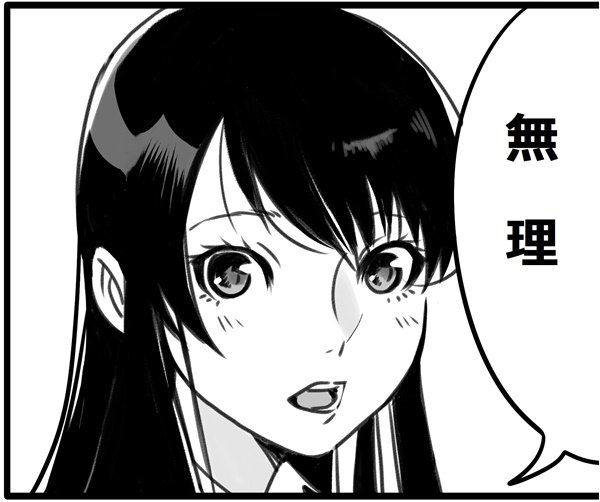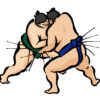What does “Muri” mean? In English?無理?

…… te iuka, muri.
・・・っていうか無理。
Suki sugite muri —!
好きすぎてムリー!
Tomoya, kawaisugite muri dawa!
倫也、可愛いすぎてムリ。
Sore wa futsuu ni muri desho!
それは普通に無理でしょ!
Recently, the number of young people, especially students, who use the word “muri(ムリ、無理、むり)" seems to be increasing.
“Muri" has an original meaning that has existed for a long time, but there is another meaning that is common among those young people.
Therefore, when older people listen to such students’ conversations, they seem to understand them incorrectly or their conversation doesn’t make sense to them.
Let’s take a closer look at “muri" used by young people and the "muri" which has been conventionally used.
What does “Muri" mean?
First, “muri(無理)", which is conventionally used, is a noun/adjective verb, and its meaning is as follows.
impossible
unreasonable
excessive
inordinate
unrealizable
unachievable
undoable
unattainable
These are easy-to-understand, even in ordinary English sentences, because they are often used in the same sense.
Usage example using “muri"
Example sentences using “muri" are as follows.
Sonna muri na chuumon wa shinaide kudasai.
そんな無理な注文はしないでください。
You are asking me something impossible.
Muri ni kojiaketara kowarete shimaimasu.
無理にこじ開けたら壊れてしまいます。
If you forcibly open it, it will break.
Chichi wa muriga tatatte byouki ni natte shimatta.
父は無理がたたって病気になってしまった。
My father worked so hard that he became ill.
Amari muri wo shinaide kudasai ne.
あまり無理をしないでくださいね。
Please take it easy.
Amari murinandai wo itte komasenaide kudasai.
あまり無理難題を言って困らせないでください。
Don’t ask me such an unreasonable demand.
Muriyari fuku wo tsumetara suutsukeesu ga kowarete shimatta.
無理やり服を詰めたらスーツケースが壊れてしまった。
The suitcase was broken when I forcibly packed my clothes.
Kanojo ga okoruno mo muri wa arimasen.
彼女が怒るのも無理はありません。
No wonder she got angry.
Muri wo shouchi de ongai shite imasu.
無理を承知でお願いしています。
I am asking knowing it is reckless.
Muri shite konakute mo iiyo.
無理して来なくてもいいよ。
You don’t have to bother to come.
Muri wa kinmotsu desu.
無理は禁物です。
Do not overdo it.
Sore wa kodomo niwa muri na shigoto desu.
それは子供には無理な仕事です。
The job is impossible for children to do.
Another “muri" (meaning slang)
Young people, of course, also use the traditional meaning of “muri", but the usage is slightly different from adults.
For example,
They simply say “muri —" when they don’t like something, don’t want to do something, or feel disgusting in something.
Because it is a short word, elementary school children tend to simply say “muri" when they can’t do something or don’t want to do something.
The phrase “Seiriteki ni muri(生理的に無理)” is often used by girls (between high school and adult, but recently also younger girls).
This means that a thing or a man they see in front of them is not their favorite.
“Seiriteki(生理的)" means “physiological", that is, they are meaning that “they are physiologically rejecting", or it is impossible for them to accept absolutely everything of the thing of the man. The phrase sounds so harsh but it is used so casually.
Also, there is “yabai" in Japanese slang. This word means “cool", “great", “fantastic", “wonderful" among young people, which is the opposite of its original meaning.
And “muri” seems to have followed a similar trend recently.
Suppose that someome;
thinks something is too cute,
feels that someone is too cool,
likes something or someone too much, etc.
Then, that person describes “muri" as “he or she can’t stand the overwhelming feeling."
If the overwhelming feeing is described in a full sentence, it will be lengthy and the sentences of young people tend to be shorter at any time, so such the feeling mentioned above becomes like “Kawaisugi te muri(可愛い過ぎてムリ)".
The trend has become as follows:
Kono keeki, muri.
このケーキ、無理。
This cake is too delicious
Takumi, ikemen sugite muri.
工(たくみ)、イケメン過ぎて無理。
Takumi is too handsome.
Suki sugite muri.
好きすぎて無理。
I like it too much.
Takumi no megane sugata hontou ni muri.
工(たくみ)の眼鏡姿、本当に無理。
Takumi with glasses is too sexy.
(Takumi is a popular actor recently, as of January 2018)
In addition, sometimes youths simply say “muri-" because youth words are abbreviated anytime there is an opportunity.
The adults who hear such slang often don’t know what the youths they mean, wondering “what’s wrong, are they OK? What are they feeling “muri" with?"
Muri gee(無理ゲー)
“Miri gee(無理ゲー)" was originally a slang on the Internet, but has recently been used in regular conversations among young people.
The meaning is “a game that is so difficult that it seems impossible to finish".
It is a word by combining and omitting of “muri" and “geemu (game、ゲーム)" (although only the last “mu" sound is omitted).
The word is used to describe an impossible, harsh, unlikely, or unreasonable situations in ordinary life.
Kono shigoto wo mainichi surutte kanari no murigee kamo.
この仕事を毎日するってかなりの無理ゲーかも。
It is impossible to do this work every day.
Ringo dake no daietto tte futsuu ni murigee nandakedo.
リンゴだけのダイエットって普通に無理ゲーなんだけど。
A diet just eating apples is simply impossible.
Aitsu ga uwaki shinai nante murigee daro.
あいつが浮気しないなんて無理ゲーだろ。
It is impossible for that person not to flirt.
Murikuri(無理くり)
Recently, the word “murikuri(無理くり)" is often used.
It seems that it was not used in TV programs about 20 years ago. Some say that it is a dialect of the Hokkaido region.
TV celebrities and comedians often use this word, so it’s more natural to think that they have spread throughout the country. In other words, it is slang.
Some say that it is a combination of the words “muri-yari (forcibly, against one’s will)" and “yari-kuri (making do, getting by)."
There was a situation in which something had to be “forced (muri-yari)" and managed to “do it (yari-kuri)."
At that time, somebody may have started using the word “muri-kuri" as he or she thought the word fit the situation.
















